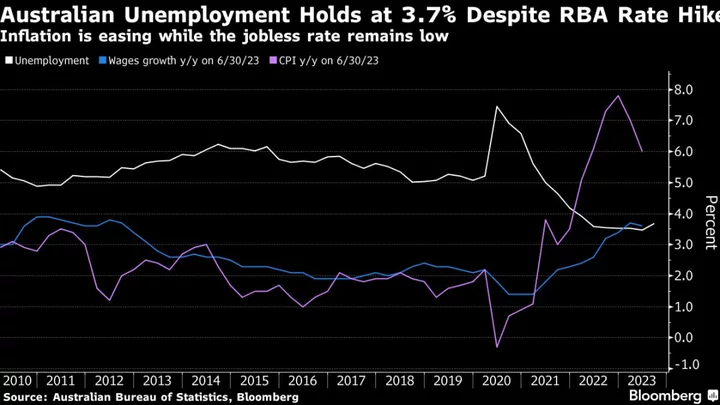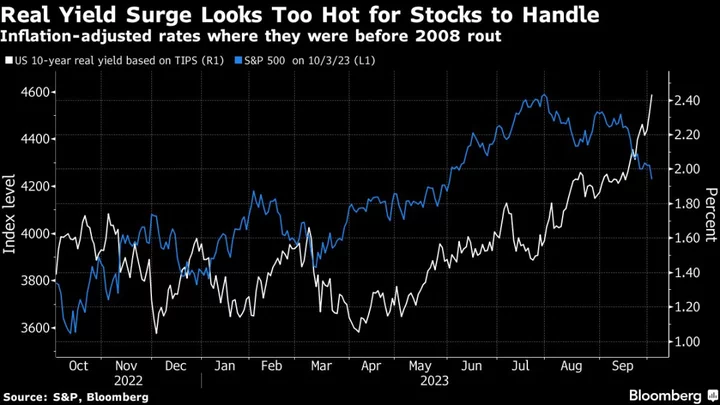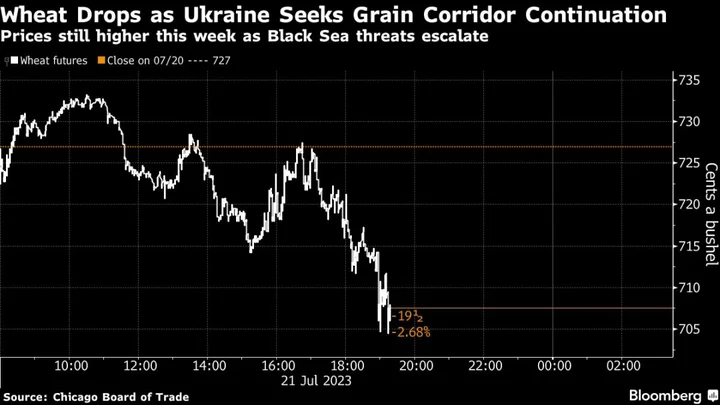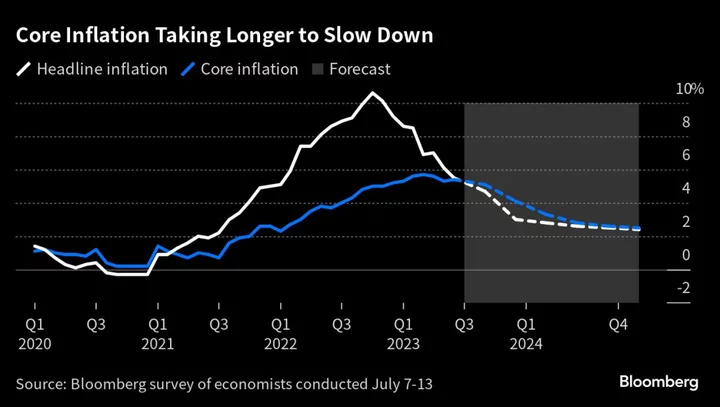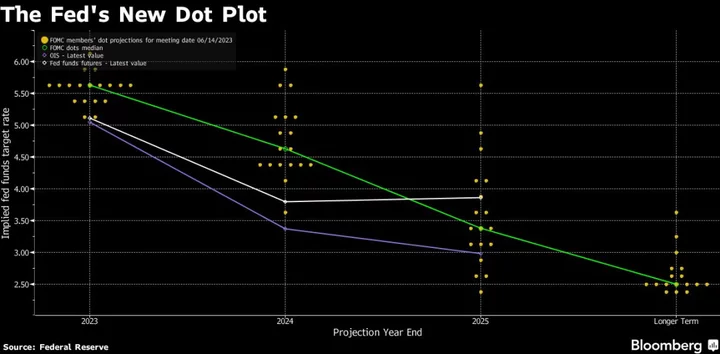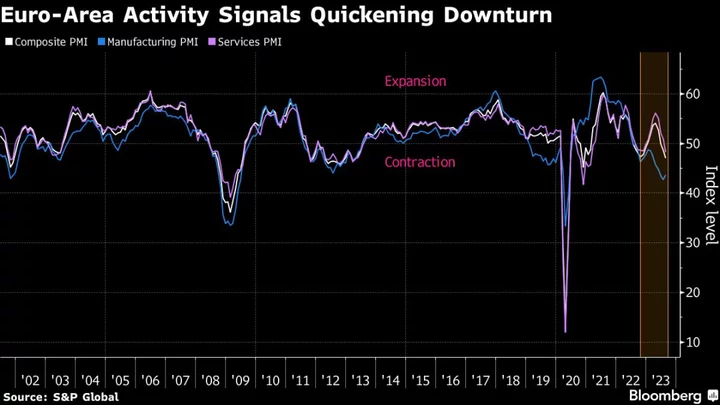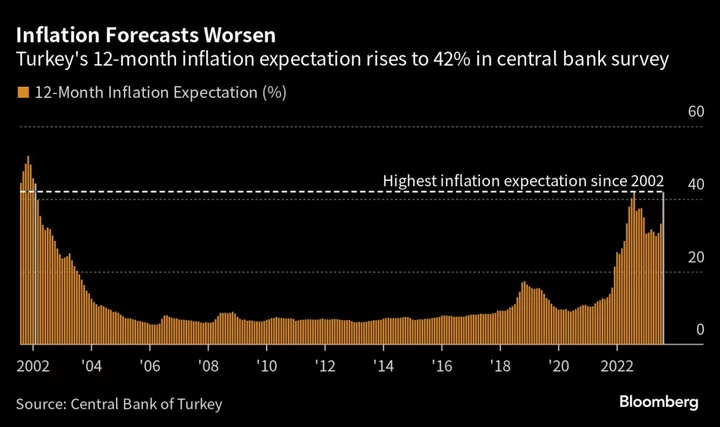Australia is considering a “broader definition” of full employment and aims to plug labor market data gaps, a new policy paper showed, as the government prepares to tweak the central bank’s mandate.
“We are improving our policy development process, and improving the data and analysis we have to measure progress and highlight shortfalls in pursuit of full employment,” the report released Monday showed. “Together, these are the foundational enablers of other priority actions.”
The report titled “Working Future” is a 252-page document that traverses the history of the labor market, its current status and future options, and is designed as a guiding light for government policy. It focuses heavily on under-utilization in the labor market rather than unemployment — which remains low — estimating that around 3 million Australians would like more work.
Monday’s white paper follows an independent review of the Reserve Bank that recommended the central bank give equal consideration to price stability and full employment in its decision-making. Treasurer Jim Chalmers has said he will sign a new statement of monetary policy conduct with the RBA this year.
Employment is already front and center of RBA decision making as policymakers repeatedly highlight that further interest-rate hikes will depend on incoming economic data on inflation, household spending and jobs. The RBA has hiked by 4 percentage points since May 2022 to take the cash rate to 4.1%.
Australian policymakers have described the labor market as tight, saying low unemployment is a key reason behind households’ resilience to higher borrowing costs and elevated cost-of-living pressures.
Monday’s report showed the government’s objective is inclusive full employment — where everyone who wants a job can find one without searching for too long. “We are also committed to addressing the structural sources of underutilization to increase the level of full employment that can be sustained over time without adding to inflationary pressures,” the report showed.
The government is funding enhanced labor market data from the Australian Bureau of Statistics and analytics capability at Treasury to support its agenda.
It intends to take nine immediate steps, including:
- Accelerate the take up of higher apprenticeships in the priority areas of net zero, care, and digitalization
- Permanently extend work bonus measure for older pensioners and eligible veterans, giving them the option to earn more income from working without reducing their pension
- Smooth the transition to work for many income-support recipients
- Back social enterprises to address persistent labor market disadvantage
“The document presents 31 future reform directions that will guide policymaking of government as well as the work of industry, unions, the education sector and civil society,” Chalmers said in a statement.
“It provides the roadmap for Australia to build a bigger, better-trained and more productive workforce – to boost incomes and living standards and create more opportunities for Australians to participate to their full potential.”

